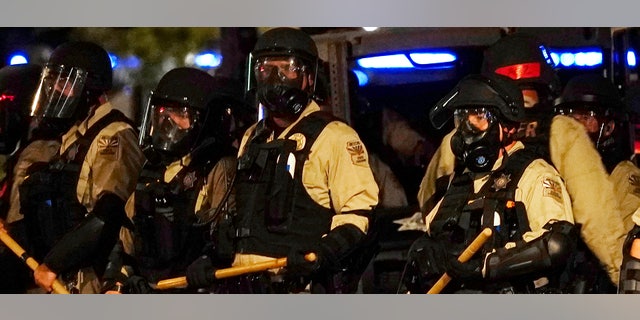New York state’s new body armor laws do not seem to have been well thought out and probably would not have stopped the gunman who shot up a Buffalo supermarket, gun experts say.
The legislation put together by state lawmakers after the May 14 mass shooting halts sales of “bullet-resistant soft body armor.” Nelson Vergara, a retired U.S. Marine and New York City law enforcement professional with an academic background in homeland security, told the Daily News that the restriction was “not carefully examined and decided.”
“It seemed like an attempt was made by state legislators who were not particularly familiar with body armor levels of protection,” he said.
During the massacre at a Tops supermarket in Buffalo, N.Y., Payton Gendron, 18, was wearing a steel-plated vest able to withstand the shots fired by a security guard brandishing a handgun. The guard, an ex-cop, was among the 10 people fatally shot that day.
Vests like Gendron’s, which can stop rifle fire by using steel, ceramic or polyethylene plates, aren’t explicitly addressed by the newly passed legislation.
:quality(70)/cloudfront-us-east-1.images.arcpublishing.com/tronc/H6XLQNNVOZGYTDZ33RU33P26RI.jpg)
Vergara hopes state legislators look to the National Institute of Justice Body Armor Guide for further guidance.

Breaking News
As it happens
Get updates on the coronavirus pandemic and other news as it happens with our free breaking news email alerts.
“The law passed should have better language stating something similar to, ‘any bullet/caliber type body armor and/or plates (hard body armor), separate or combined, homemade or company produced, is prohibited unless authorized by state law under special provisions,” he said.
:quality(70)/cloudfront-us-east-1.images.arcpublishing.com/tronc/4IOJ4ZBD55AT3ILRSMMUD4PXRU.jpg)
Lawmakers are rethinking the hastily drafted legislation. One of its sponsors, New York Assembly member Jonathon Jacobson admitted the new legislation was rushed and said he’ll be glad to amend the law to make it “even stronger.”
The legislation also does not prohibit New Yorkers from wearing body armor purchased outside the state. Jacobson plans to change that in January during New York’s next legislative session.
:quality(70)/cloudfront-us-east-1.images.arcpublishing.com/tronc/OFKV34LOJVBFXGKKQWHQXP4P64.jpg)
Gov. Hochul is also willing to give the armor laws a closer look in due time, and will “work with the legislature to expand the definitions in the law at the first available opportunity,” her office said.
Until now, restrictions on body armor sales were all but nonexistent on a national level. In Connecticut, civilians can only purchase body armor in person. Other states prohibit convicted felons from procuring armor. State officials are still working to determine which occupations will merit exemption from New York’s new laws.
body-paragraph”>The Violence Project co-founder James Densley found that 12% of mass shooters in public spaces have worn body vests since 1966. That includes the gunman responsible for a 2012 massacre in an Aurora, Colo., theater that left a dozen people dead; another who killed 10 people in a Boulder, Colo., supermarket that same year, and mass murder Devin Patrick Kelley, who took his own life after gunning down more than two dozen worshipers in a Texas church in 2017.
With News Wire Services

